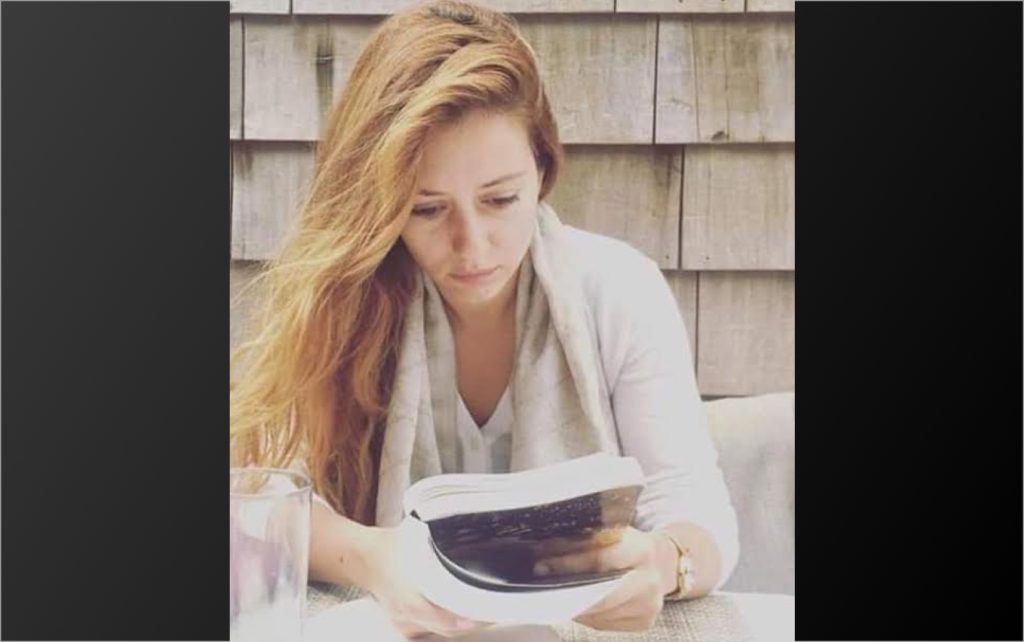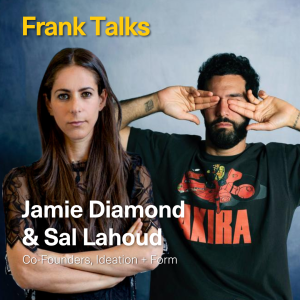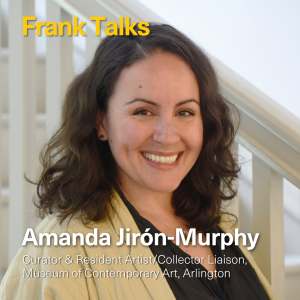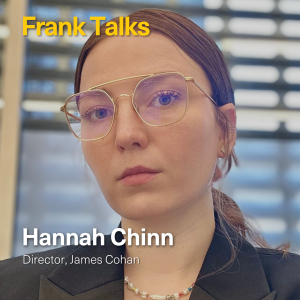This week we sit down with Manan Ter-Grigoryan, the Director of Postmasters Gallery in New York and the founder of Waves & Archives, a platform for the exploration of fashion as one of art’s mediums. Manan Ter-Grigoryan has extensive and uniquely varied experience in the international contemporary art world. She served as the director of an art advisory firm, Parks Fine Art, which specializes in the work of established artists of the latter half of the 20th century and emerging artists of the 21st century. Manan was a team member of VIP Art fair – the first online-only art fair and an executive editor of ArtObserved.
Manan earned a graduate degree in Modern Art, Curatorial Studies from Columbia University, a second MA in Art Business from Sotheby’s Institute of Art, as well as a bachelor’s degree in Media Analysis from the American University of Paris. Having lived, studied and worked in several countries, Manan is fluent in English, French, Italian, Russian and Armenian. We are very excited to share Manan’s advice and experience with you here in her excellent Frank Talk!
What was your first job in the Arts?
I consider my very first job in the arts to be the volunteer position of a museum guide/ art interpreter which I had assumed as a child, and where my only listeners were my parents. [laughs] Otherwise, I was a writer and editor of an art publication at ArtObserved right upon receiving my master’s degree from Columbia University’s graduate curatorial program.
What was the most useful or important thing you learned at that job?
Reality can both undermine idealistic aspirations and serve as a teaching and motivational tool, and I think I learned at that job how to navigate myself towards the latter.
Tell us a little more about yourself. When did you realize you wanted to pursue a career in this industry?
I grew up in six countries, in a constant state of embracing and adapting to new cultures, at times having to shed or re-dress the previous ones. There was a certain loss of control every time my cultural references were re-contextualized. This acknowledgment turned my very hard-science-wired mind towards visual culture in general, to recognize patterns before I could gain fluency in languages.
What do you do now?
I am the director of Postmasters Gallery in New York and the founder of Waves and Archives – a platform for exploration and promotion of fashion, as one of art’s mediums.
Where are you from?
I am Armenian by birth, and I grew up in Moscow, Cyprus, Paris, Italy, and New York.
Has where you come from shaped what you do in the arts today?
Being from everywhere, and from nowhere, makes you adaptable, but also enforces a strong core – so that you don’t lose yourself while adapting. This particular dichotomy, I believe, made me into a gentler leader than I would have been otherwise. In that sense, my multi-cultural background has influenced how I do things in the arts, more than influencing the particular thing that I do.
What is the best piece of advice you can give about working in the art world?
Take all the time you can to carve out to foster your relationship with art, so that you do not lose sight of why you wanted to do this in the first place. For some people it might mean sitting alone in front of their favorite piece, for others it might be reading Heidegger out loud with a fake German accent to their best friend in a sofa-pillow fort. [laughs] Whatever your particular way of reconnecting with your love of art may be – leave some time for it.
What is one of your greatest accomplishments in your career so far?
I think greatest accomplishments present themselves more profoundly in what most would consider insignificant contexts. I am mostly proud of having stayed kind under pressure, giving credit where I could have taken it, shielding my colleagues from mistakes that were not mine. In my experience the choice to stay kind, ultimately succeeds to motivate, and leads to achievements.
What has been a challenge for you?
The art world’s strange aversion to numbers is a bit challenging to my math driven mind.
What is something you do every day at work?
At Postmasters gallery, I have given myself the task to first serve as a “chief operating officer”, which means defining and creating all strategic processes for marketing, outreach, press, museum relationships, hiring, operations, etc. At Waves and Archives, which will present itself in a form of a fashion gallery, library and a publication, I do endless research to build an interactive knowledge visualization map to illuminate all of the varying connections between art criticism’s most important thinkers. I have now made over 10,000 tags to classify and connect 700 writings on art criticism; and look forward to making this otherwise guarded knowledge accessible to all. My team and I are also working on designing the publication and contacting writers.
What is one of the weirdest things you have had to do on the job in your career?
I can’t think of a single weird thing.
What defines a good employee? What defines a good boss?
I believe the answer applies to both instances, and it is – caring and kindness. If you can fairly navigate between caring (whether it be for personal gain, about the bigger picture, or even just a game-like ardor for victory) and remaining kind – there is a whole lot of room there for diverse notions of good performance.
What do you think makes a person hirable?
Common sense, transferable skills and good will.
What is your advice to making yourself stand out in your workplace?
I think people notice the small stuff more than we would anticipate. There is a phrase in Russian “the talented need to be given a platform, the talentless will push themselves”, and I, for one, am more likely to take note of witnessing a quiet ethical choice over seeing a loud momentary achievement.
What are things you can do proactively boost your CV?
Taking interest in what others do – a true, unadulterated by ambition interest – can become a catalyst for some unexpected opportunities.
Are there any tips you can give people entering the workforce?
Reading through a lot of cover letters, I see often how people focus on what the hiring party can do for them, and not what they can do for the hiring party. A simple JFK-esque adjustment, can serve you well past the hiring stage, and guide you towards all sorts of other opportunities.
In your experience, what are things to do and things to avoid during an interview?
Ask lots of adequate questions, questions that would help you figure out how you could be helpful to the person who is hiring. A good interview is a dialogue.
Any other anecdotes about your experience in the art world that you would like to share?
Why not? Very recently, one of our artists asked me to review his conversation with a winner of a Nobel Prize in literature. I will conceal the names to protect mostly my identity… [laughs] but the nerd in me was definitely celebrating the idea that I am giving my opinion on the writing of a Nobel Prize laureate.
What is the best exhibition you have seen in the last year?
There is a digital art museum in the making called “the current”, and for one of their members’ salons they curated a show of digital art around the theme of truth, and that was lovely.
If you could own a work by 5 different artists, who would be in your collection?
As is the manifesto of Waves and Archives, I believe fashion is one of arts mediums. I would love to own the water-dress by Iris Van Herpen, Malevich’s “Black Square” (to put in the corner of my bedroom), a piece from late Alexander McQueen’s “The Widows of Culloden” collection, a first edition of Ed Ruscha’s “Twentysix Gasoline Stations”, and Hussein Chalayan’s wooden coffee table skirt.
